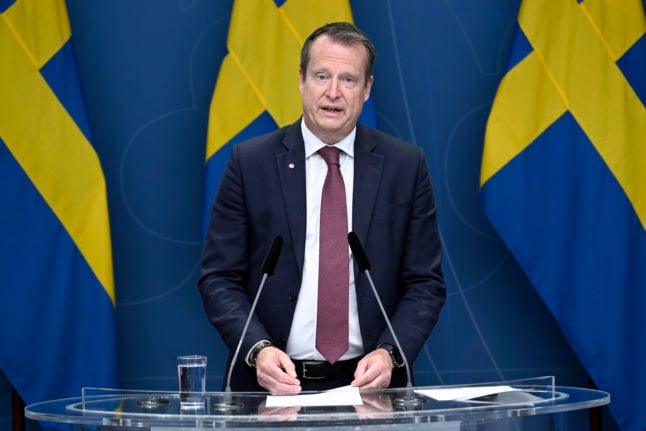Sweden’s migration minister Anders Ygeman told a press conference on Wednesday that the government would soon launch an inquiry into how best to reintroduce the so-called “labour market test” for work permits. The inquiry will also look at ways to combat wage dumping and the exploitation of labour migrants.
According to Ygeman, scrapping the labour market test system in 2008 has led to extensive labour migration, often in occupations where there is no shortage of labour.
There had, he said, been “no requirements on job contracts, no requirement that the job should be filling a position with a national shortage, no limit for the number of labour migrants coming to Sweden, no requirement to support relatives financially, and no requirement for full-time work”.
All other countries in Europe make these demands for work permits “in various combinations,” he said.
According to Ygeman, Sweden’s unusually liberal system has led to it being abused by criminals, to wage dumping, and have also made it harder for the unemployed and people seeking asylum in Sweden to find work.
The inquiry – utredning, in Swedish – will look into what skilled labour Sweden lacks in order to create a labour market test, and ensure that the system can meet the needs of the Swedish labour market.
“To ensure the adaptability and competitiveness of Swedish companies, the system must be efficient and designed so that it simplifies processing, minimises the administrative burden for employers and enables short, fast processing times,” Ygeman said.
The investigation will also explore how the spårbyte or “track-change” system can be scrapped. Under the spårbyte system, people in Sweden who have their asylum applications rejected are currently able to stay in Sweden and switch to a work permit instead.
Companies hiring and exploiting foreign labour could also be forced to pay higher fees, Ygeman said.
“Companies hiring people who don’t have the right to live and work in the country lead to exploitation, low salaries and bad working conditions,” he said.
“It could be the case that the fee is differentiated,” he said, “as in, that the fee is charged based on a percentage of the company’s turnover”.
The investigation will be completed by July 31st 2023, at the latest.



 Please whitelist us to continue reading.
Please whitelist us to continue reading.
Member comments